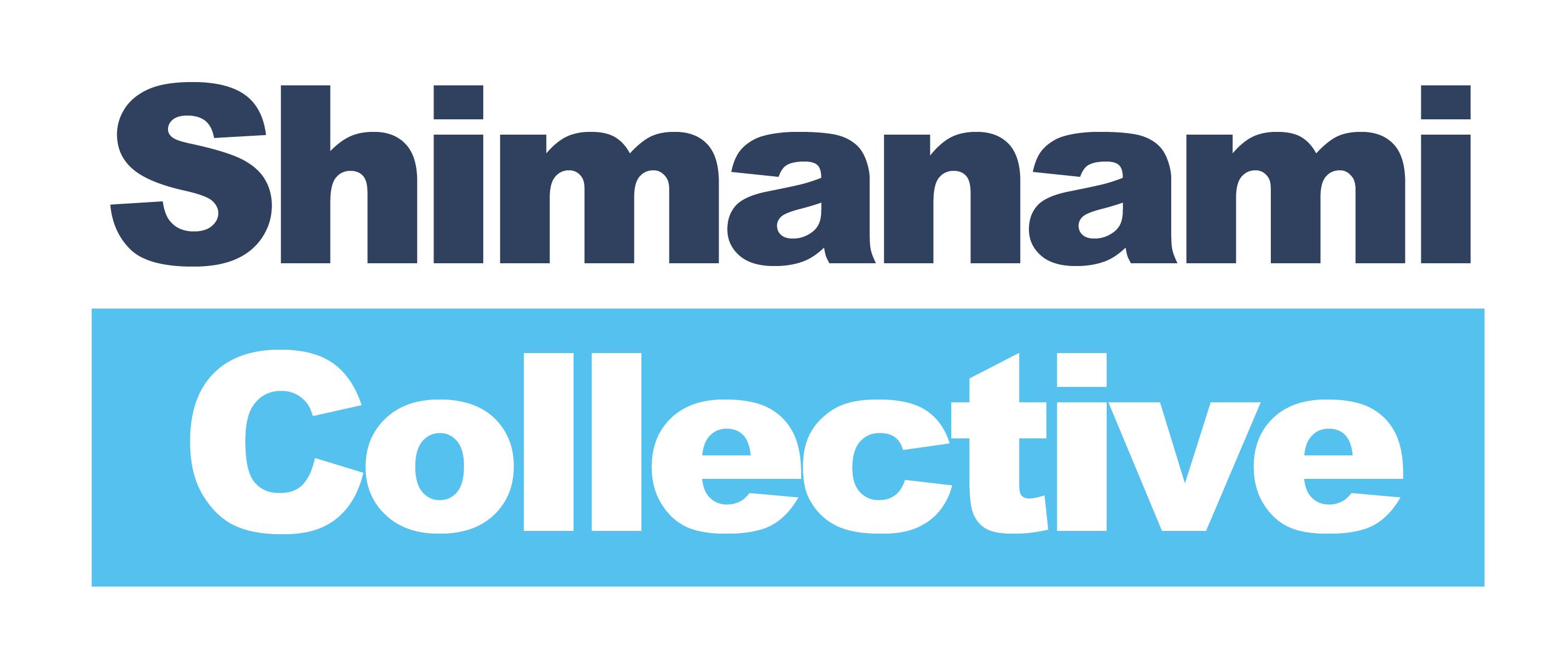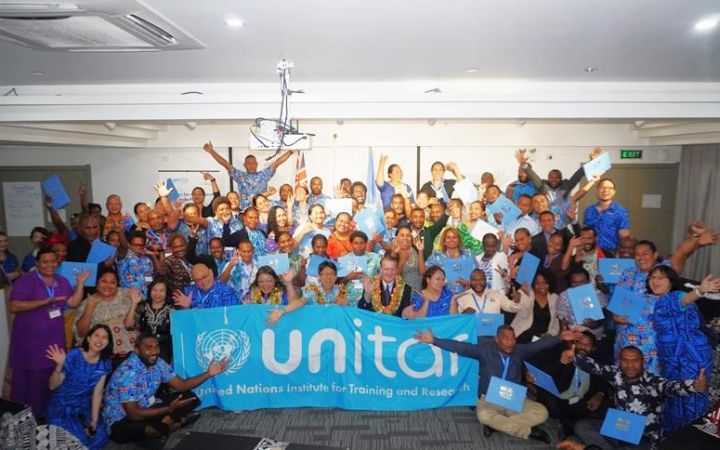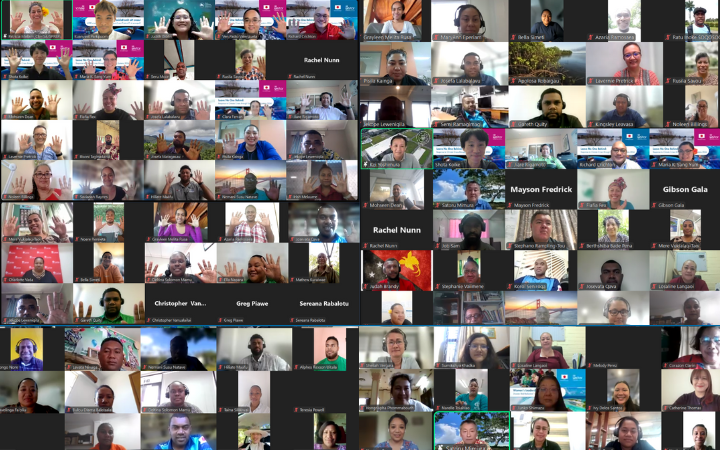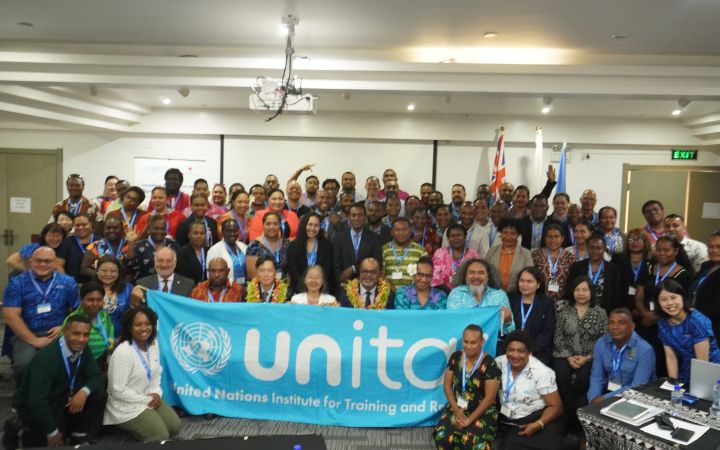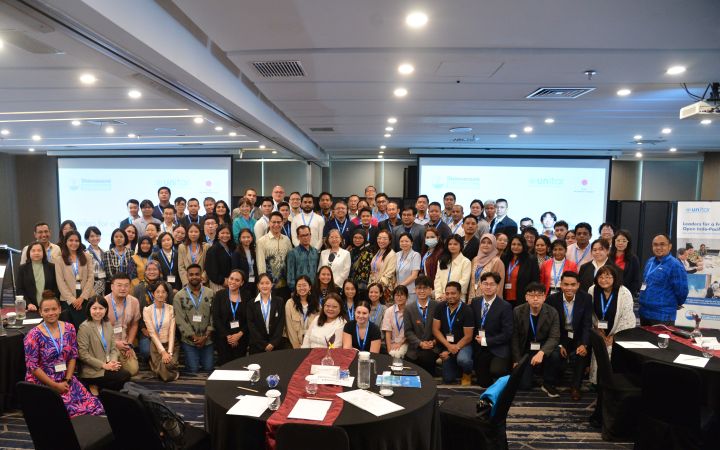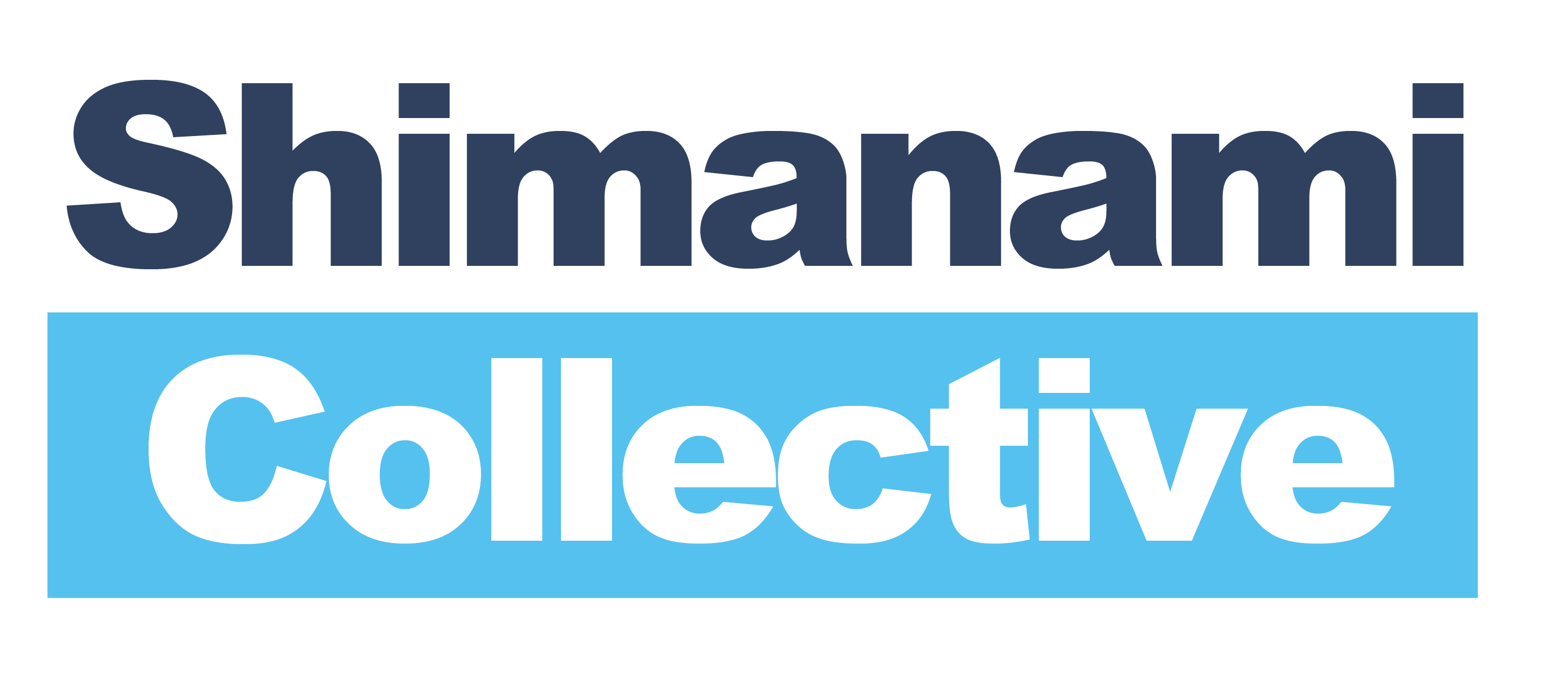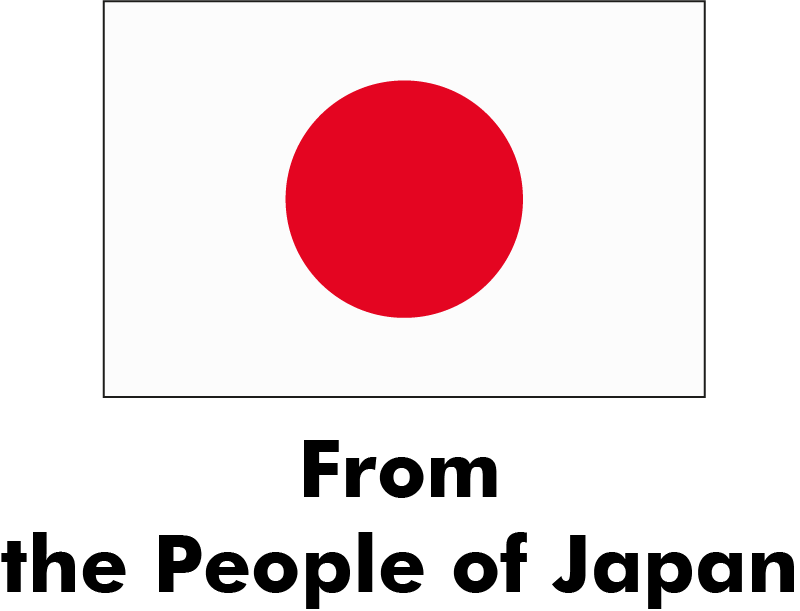- UNITAR brought together approximately 70 participants from 8 Pacific Island countries to the ‘UNITAR Leaders for a Free and Open Indo-Pacific: Sea and Human Security’ training programme workshop, held in Nadi, Fiji, from 1 to 10 October.
- This pivotal workshop featured expert-led lectures covering a wide range of topics in relation to the sea and human security and study tours to Viseisei and Yako villages.
- Participants demonstrated their learnings through group presentations and received certificates of completion at the closing ceremony on 10 October.
- The final phase of the programme will welcome about 50 participants from the second phase to a study tour in Japan, in February 2025.
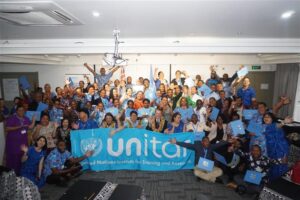
10 October 2024 Nadi, Fiji – On 10 October 2024, the final day of the United Nations Institute for Training and Research (UNITAR) Sea and Human Security regional workshop in Fiji, around 70 agents of change from eight Pacific Island countries presented their group projects, exhibiting their improved skills and collaborative spirits to tackle sea and human security issues.
Special awards were given to groups with outstanding presentations, including the group that presented on solutions for water pollution in Pacific, which received the Most Innovative Award.
LEARNING FROM STUDY TOURS AND EXPERT-LED LECTURES
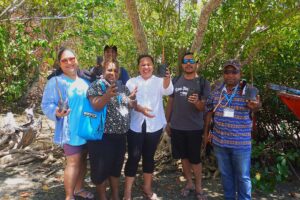
The 10-day workshop was tailored to equip participants with knowledge and skills to address the sea and human security challenges and needs in their communities. Participants went on study tours, completed group work and attended expert-led lectures and mentoring sessions to develop group presentations and individual project plans, which they will take back to their communities for further implementation.
The study tours to Viseisei Village and Yako Village, on 3 and 5 October, respectively, provoked interest and environmental concerns among participants. At Viseisei Village, the participants learned about the village’s efforts to sustain its natural resources in the face of climate-related hazards, including the pressures of rising sea levels, while collaboratively working towards sustainable economic development. At Yako Village, the participants learned about the role of mangroves in climate-change mitigation and adaptation through a hands-on mangrove planting activity. They planted a total of 100 mangrove seedlings under the guidance of an official from the Forestry Department, aiming to enhance the resilience of the coastal community.
The expert-led sessions broadened the participants’ perspectives on economic and security issues such as the blue economy and environmental, maritime and food security. Some sessions focused on capacity building in fostering gender equality and leadership skills. The lectures and mentoring from the experts helped participants in developing their project plans, which address specific issues in their communities, as well as sector-based group work to underscore policy recommendations against alarming sea and human security issues.
After this programme, I believe my role will be to focus on capacity building for exporters and private sectors with what I gain from this training. I will go back to my country and build a capacity base in tourism and other sectors in which I am involved.”- Freda Javelyn Tekulu (Solomon Islands)
I’m impressed with the motivation, the aspirations that a lot of participants have. I have no doubt [they] are committed to making a difference. I think the more of us that are involved in this campaign, the better it would be, because this message has to be shared with everyone in our communities – that Pacific Islanders need to look after their food sources because our existence depends on it.” – Joeli Veitakayi, Strategic Advisor at Blue Prosperity Fiji (An expert lecturer for the sessions on environmental security and good practices in food security)
THE WAY FORWARD
The closing ceremony marked the culmination of the Nadi regional workshop and the second phase of the “The Leaders for a Free and Open Indo-Pacific: Sea and Human Security” training programme. Mr. Isami Takada, Counsellor and Deputy Chief of Mission of the Embassy of Japan in Fiji, delivered congratulatory remarks and handed the training workshop certificate to each participant.
Ms. Chisa Mikami, Head of the UNITAR Hiroshima Office, expressed appreciation for the commitment of the participants throughout the workshop. She also called upon them to continue strengthening their regional collaboration towards a more secure and inclusive future for the Pacific region.
Mr Wilfred Luiramo from the Solomon Islands and Ms Tarota Bwebwetara from Kiribati represented the participants to give speeches.
One of the most important things is that what we experience doesn’t end here. Some of us will make it to phase 3 but what is more important is that we all take the FOIP value principle, take it back with us, and spread the messages to our communities.” – Mr. Wilfred Luiramo, Solomon Islands
This training has been enlightening and deepened my understanding of sea and human security. The interconnectedness between Pacific countries will enhance the community with resilience and sustainable development. We’ve developed insight to protect our ocean and ensure the safe livelihood of our community.” – Ms. Tarota Bwebwetara, Kirabati
Through the in-person regional workshop, participants developed their leadership skills, deepened their understanding of the sea and human security, and strengthened the regional networks to enhance local resilience for peace, prosperity and security in the region. The final phase of the programme will welcome about 50 participants from the second phase to a study tour in Japan, in February 2025.
UNITAR is sincerely grateful to the Government and People of Japan and the Government of Fiji for their support for this workshop and programme. We would also like to acknowledge all the lecturers who generously shared their time and expertise with the participants.

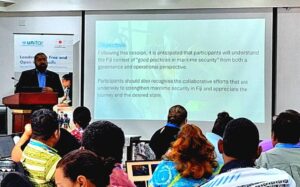
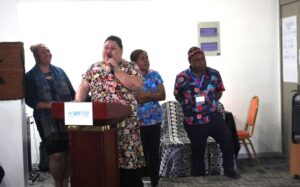
ABOUT THE LEADERS FOR A FREE AND OPEN INDO-PACIFIC: SEA AND HUMAN SECURITY PROGRAMME
“The Leaders for a Free and Open Indo-Pacific: Sea and Human Security” training programme (June 2024 to February 2025) aims to provide participants with the skills and knowledge to enhance climate, social, economic, food and maritime security and to establish a coordination mechanism across the Indo-Pacific. It is implemented by UNITAR and is funded by the Government and People of Japan.
In the first phase of the programme, which ended in August 2024, over 400 learners completed two months of online learning.
For the programme’s second phase, a regional workshop was held in Jakarta in September 2024, followed by a workshop in Nadi, Fiji, in October, through which approximately 150 participants were trained in person.
The third and last phase will invite the top 50 performers from Asia and the Pacific combined to an in-person workshop in Japan scheduled for February 2025.
The programme is part of the broader “Shimanami Collective” initiative, a Japan-supported series of training programmes, which aims to build resilience against disasters and enhance sea and human security. The initiative particularly focuses on empowering youth and women in the Asia-Pacific region.
To read more about the programme, please visit here.
CONTACT
Parkpoom KUANVINIT, UNITAR Hiroshima Office
Email: parkpoom.kuanvinit@unitar.org
ABOUR UNITAR
The United Nations Institute for Training and Research (UNITAR) is a dedicated training arm of the United Nations. In 2023, UNITAR trained over 540,000 learners around the world to support their actions for a better future. UNITAR has a global presence, with offices in Geneva, Hiroshima, New York and Bonn and networks around the world. Find out more at www.unitar.org
Facebook: @UNITAR.Hiroshima
Twitter: @UNITARHiroshima
YouTube: UNITAR Hiroshima
LinkedIn: UNITAR Division for Prosperity
Instagram: @unitardivision4prosperity
TikTok: @unitarprosperitydivision
